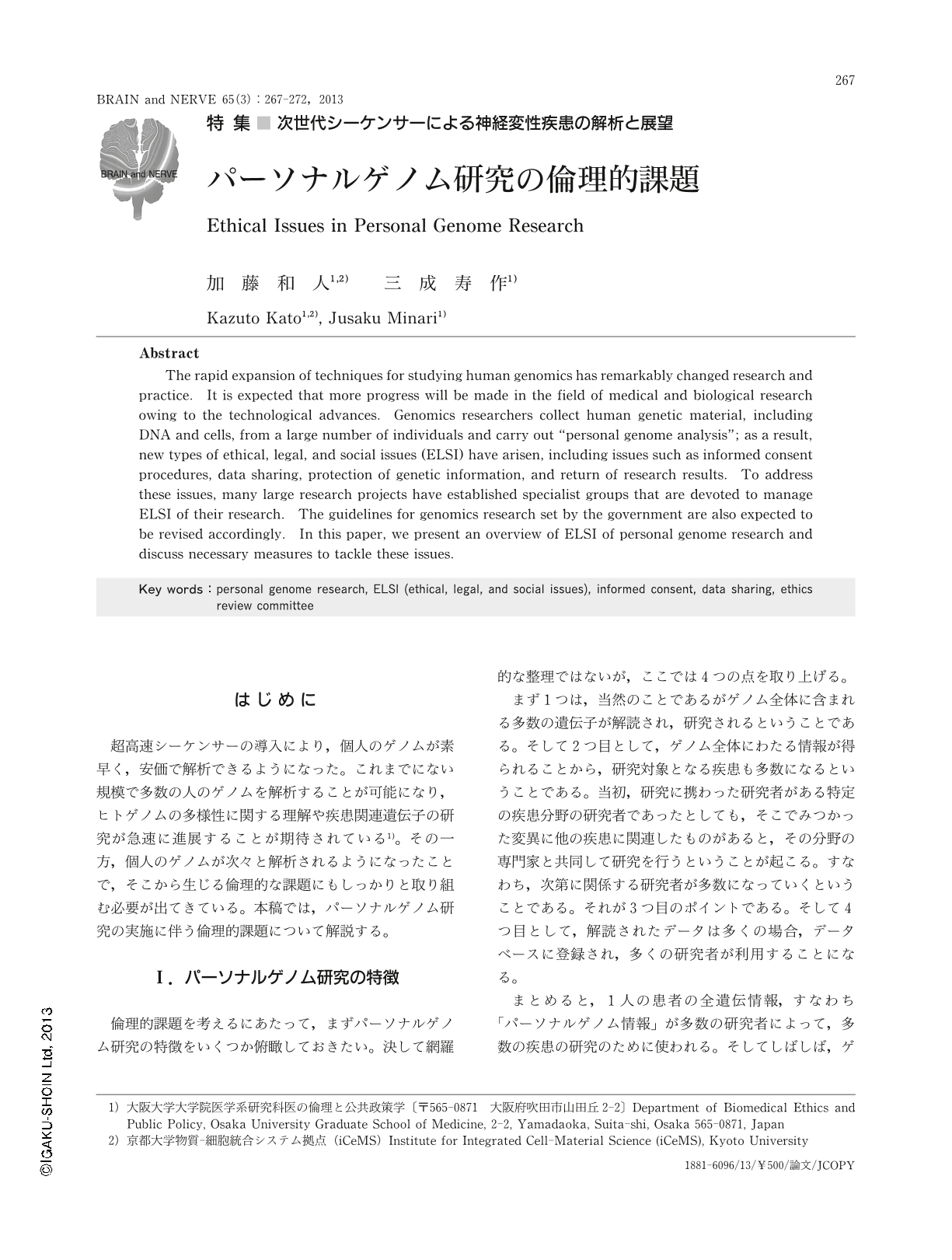Japanese
English
- 有料閲覧
- Abstract 文献概要
- 1ページ目 Look Inside
- 参考文献 Reference
- サイト内被引用 Cited by
はじめに
超高速シーケンサーの導入により,個人のゲノムが素早く,安価で解析できるようになった。これまでにない規模で多数の人のゲノムを解析することが可能になり,ヒトゲノムの多様性に関する理解や疾患関連遺伝子の研究が急速に進展することが期待されている1)。その一方,個人のゲノムが次々と解析されるようになったことで,そこから生じる倫理的な課題にもしっかりと取り組む必要が出てきている。本稿では,パーソナルゲノム研究の実施に伴う倫理的課題について解説する。
Abstract
The rapid expansion of techniques for studying human genomics has remarkably changed research and practice. It is expected that more progress will be made in the field of medical and biological research owing to the technological advances. Genomics researchers collect human genetic material, including DNA and cells, from a large number of individuals and carry out "personal genome analysis"; as a result, new types of ethical, legal, and social issues (ELSI) have arisen, including issues such as informed consent procedures, data sharing, protection of genetic information, and return of research results. To address these issues, many large research projects have established specialist groups that are devoted to manage ELSI of their research. The guidelines for genomics research set by the government are also expected to be revised accordingly. In this paper, we present an overview of ELSI of personal genome research and discuss necessary measures to tackle these issues.

Copyright © 2013, Igaku-Shoin Ltd. All rights reserved.


